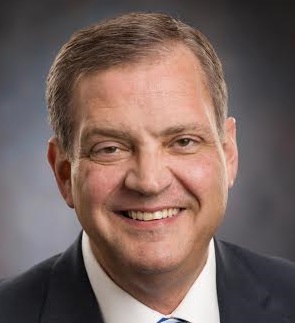By Bob Allen
Forty-one years after Roe v. Wade, America is arguably more divided over abortion than in 1973, a Southern Baptist seminary president and theologian observed on the Jan. 22 anniversary of the landmark Supreme Court ruling that reproductive choice is a private matter between a woman and her doctor.
 Albert Mohler, president of Southern Baptist Theological Seminary, said in his Wednesday news briefing podcast that abortion stands as “one great exception” to American culture’s “great moral shift” away from traditional values.
Albert Mohler, president of Southern Baptist Theological Seminary, said in his Wednesday news briefing podcast that abortion stands as “one great exception” to American culture’s “great moral shift” away from traditional values.
Mohler, who also serves as the Joseph Emerson Brown Professor of Christian Theology at the Southern Baptist Convention seminary in Louisville, Ky., said most Americans hadn’t really thought about the issue of abortion prior to the 7-2 Supreme Court decision handed down Jan. 22, 1973, that a woman’s right to an abortion fell within the right to privacy protected by the 14th Amendment of the U.S. Constitution.
“And, to our great shame, that included the vast majority of American evangelicals,” Mohler said. “As a matter of fact, up into the mid-1970s most evangelicals sought not to be involved with the issue.”
“As with the birth control issue, evangelicals made a hasty mistake deciding that this must be a Catholic issue,” Mohler said. “And to their credit, Roman Catholics were largely those who populated the pro-life movement in the 1960s up to the mid-point of the 1970s.”
Mohler said that all changed in the last five years of the 1970s, as “evangelicals became awakened to the issue of the sanctity of human life.”
“This came in the context of other cultural and moral changes as well,” he explained. “This came in the context of an increased understanding of what was happening in America with the rise of no-fault divorce, with the largely universal reality of the birth-control culture, with the understanding that children themselves were being devalued and the family was being marginalized.”
“But it was the understanding of the moral status of the baby in the womb that helped to awaken evangelicals to the great threat to the sanctity of every single human life that legal abortion then represented,” he said.
Mohler said abortion first became a political issue in the 1980 presidential election and has remained important in U.S. politics ever since, up to and including the upcoming mid-term elections in 2014.
Mohler said Americans today tend to be more opposed to late-term abortions than to those performed in the first three months of pregnancy.
“The Christian world view reminds us that very single human life is fully human, fully sacred, fully deserving of our protection, from the moment of conception until natural death,” he said. “At every moment of human development that human life is equally sacred and deserves our full and equal protection.”
